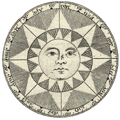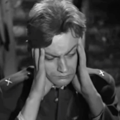Hank G (BookWyrm) reviewed I, Robot by Isaac Asimov (Robot (1))
Dry but solid exploration of of "the three laws" and its ramifications
4 stars
Isaac Asimov: I, Robot (Paperback, 1984, Del Rey) 4 stars
I read it in dribs and drabs over the past few months. Although obviously anachronistic about robotic hardware, computer technology, and gender relations since it was written so long ago it was still a great exploration of how "the three laws" of robotics plays out in life scenarios. I loved the vignette style format and its attempt to deep dive into the technical problems being explored. I can see why all that is way too dry for others though.
Isaac Asimov: I, Robot (Paperback, 1984, Del Rey) 4 stars
I read it in dribs and drabs over the past few months. Although obviously anachronistic about robotic hardware, computer technology, and gender relations since it was written so long ago it was still a great exploration of how "the three laws" of robotics plays out in life scenarios. I loved the vignette style format and its attempt to deep dive into the technical problems being explored. I can see why all that is way too dry for others though.





